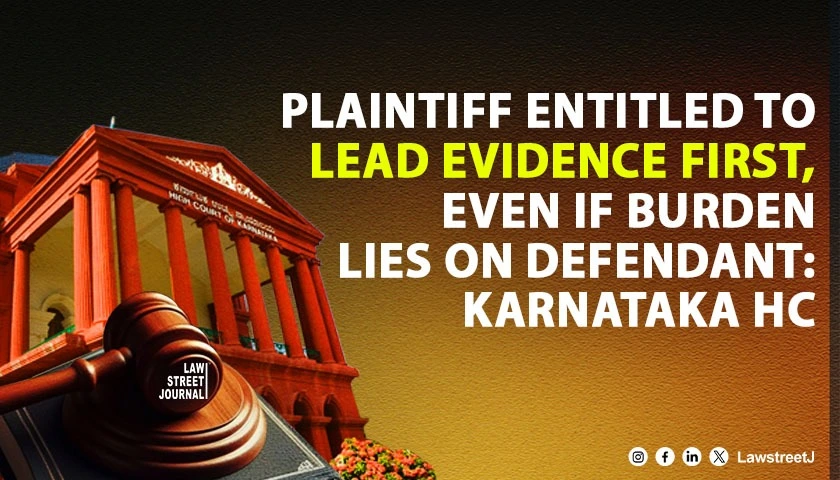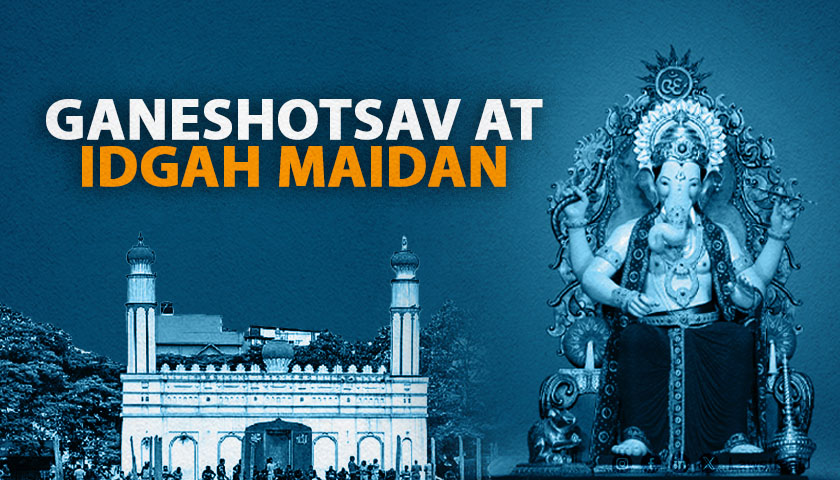Karnataka: The Karnataka High Court has clarified that under Order XVIII Rules 1 and 3 of the Code of Civil Procedure, 1908, the plaintiff retains the primary right to lead evidence first in a civil suit, even when the burden of proving certain specific issues rests upon the defendant.
Justice S. Vishwajith Shetty delivered this significant ruling while setting aside a trial court order that had directed the defendant to lead evidence before the plaintiff in a property partition suit.
The Court was hearing Writ Petition No. 796 of 2022 filed by Mr. Deenanath challenging an order dated November 10, 2021, passed by the Principal Senior Civil Judge and CJM, Mangaluru, in O.S. No. 193 of 2019.
The case involved a partition suit filed by four plaintiffs seeking one-fifth share each in ancestral property. The defendant claimed that their late father, K. Ananda, had executed a will dated November 11, 2007, bequeathing one property in his favour. The plaintiffs filed a memo stating that they had no evidence to lead at that stage and reserved their right to lead rebuttal evidence, requesting that the defendant be directed to lead evidence first.
The trial court had framed four issues, with Issue No. 2 specifically placing the burden on the defendant to prove the validity of the alleged will. Accepting the plaintiffs’ request, the trial court directed the defendant to lead evidence, treating the plaintiffs’ evidence as ‘nil’ for the time being.
Justice Shetty examined Order XVIII Rules 1 and 3 CPC and observed, “Order XVIII Rule 1 would go to show that the said Rule recognizes that ordinarily it is the plaintiff who has the right to begin by leading his evidence, and the only exception would be where the defendant admits the facts alleged by the plaintiff and contends that, either in point of law or on some additional facts alleged by the defendant, the plaintiff is not entitled to any part of the relief which he seeks.”
Discussing multi-issue suits, the Court further clarified, “A reading of Rule 3 would go to show that in a case where there are multiple issues and if the burden of proving some of the issues is on the defendant, Rule 3 gives an option to the plaintiff either to produce evidence on those issues initially or to reserve it by way of answer to the evidence produced by the other party.”
The Court emphasized that the primary right to lead evidence always lies with the plaintiff, except for those specific issues where the burden is legally shifted.
Relying on the Bombay High Court’s decision in Bhagirath Shankar Somani v. Rameshchandra Daulal Soni (2007), Justice Shetty noted that Order XVIII Rule 1 is an enabling provision granting the defendant a right to begin only in limited circumstances and “does not confer any power on the Court to direct the defendant to enter the witness box and adduce evidence first.”
The Court observed, “The scheme of Rule 1 appears to be that, as a normal rule, it is the privilege of the plaintiff to lead evidence first. However, it enables the defendant to exercise that right only in the contingency mentioned in the Rule.”
Explaining the correct procedural sequence, the Court stated, “When the plaintiff exercises such an option, he can adduce evidence on those issues by way of rebuttal after the defendant has produced his evidence. After the plaintiff exercises this option, it is for the defendant to decide whether he wants to lead evidence.”
Rejecting the contrary view expressed by the Orissa High Court in Rama Krushna Mohanty v. Gokulananda Panda, the Karnataka High Court held that it had only persuasive value and could not override the settled procedural framework.
Accordingly, the High Court set aside the trial court’s order and directed that the plaintiffs shall begin their evidence on all issues except Issue No. 2. For Issue No. 2, if the plaintiffs request to lead rebuttal evidence after the defendant’s evidence, the trial court may consider it in light of the observations made in the judgment.
Mr. K. Ravishankar appeared for the petitioner, while Mr. Sandesh Shetty T represented the respondents.
Case Title: Mr. Deenanath v. Chandrahas & Ors.



![Karnataka High Court: Cabinet Rank Status Not Equivalent to Ministerial Position [Read Order]](/secure/uploads/2023/09/lj_2318_fc1b99b7-aeed-472b-836e-33750bedb394.jpg)


![Woman living in adultery cannot claim maintenance: Karnataka High Court [Read Order]](/secure/uploads/2023/10/lj_3083_Women_living.jpg)






